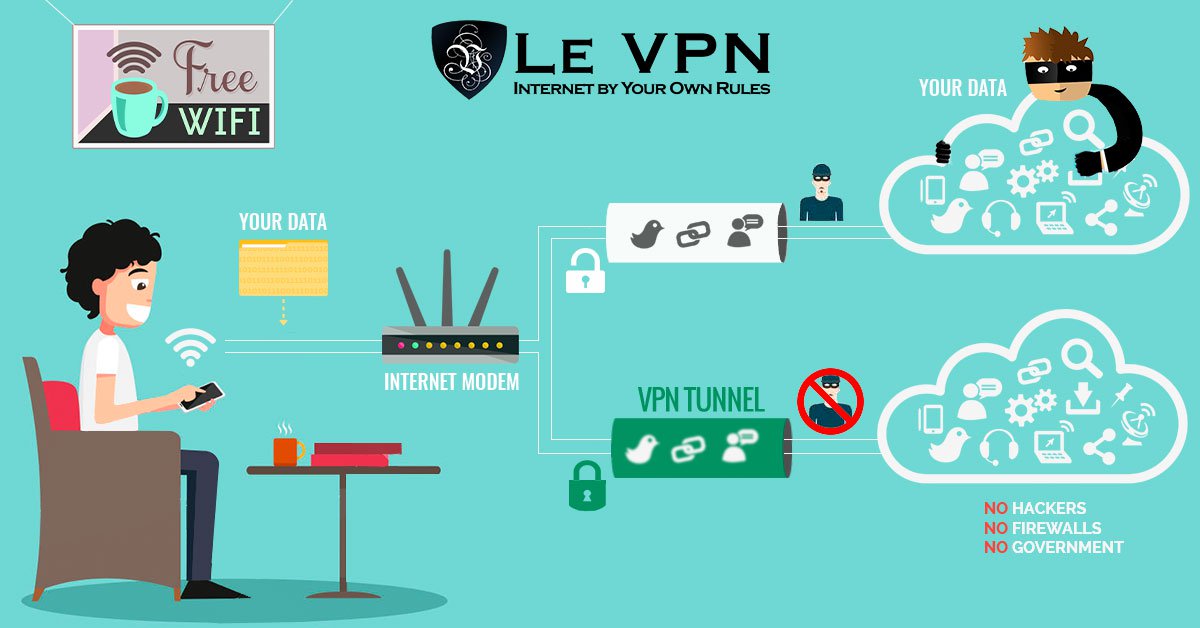The Checklist to Go Through When Choosing a VPN
The Checklist to Go Through When Choosing a VPN

These days, there are so many different VPN choices on the market. More and more people are turning to the privacy and security that Virtual Private Networks or VPNs offer, but how exactly do you choose one from another? The best VPN for you depends on your needs. Are you trying to get around content restrictions based on location? Are you looking to trade cryptocurrency? The best way to figure it out is going through some VPN comparisons (for example this one) and seeing which services offer the best overall features. From here, you'll be able to narrow it down to exactly what you need. When selecting a VPN provider, make sure they tick all these boxes.
1) Speed, Speed, Speed
Even if you are casual internet user and you mainly just use social media, stream content, exchange emails, and so on, you don't want to give up too much on speed. Nowadays, no matter what website you go to, it's likely going to be content-heavy with a lot of images, videos, and graphics, and there's nothing more frustrating than having to wait for everything to load.
When going through your VPN comparisons, do a speed test. The best way to do this is to run a speed test without the VPN turned on, then after. If you see more than a 10% decrease in network speeds, then go with a different option.
2) Where Do You Need Secure Access?
These days, more and more privacy experts advocate using a VPN for all your online activity. This is because even major websites get hacked and fall victim to malware, phishing attacks, worms and other problems that may get transferred over to your computer and mobile device.
For this reason, you want a VPN that provides flexible service across devices. This means that it allows you to protect your home computer while also being compatible with your router, so all your home internet activity is safe. Likewise, the VPN should cover you while you on your smartphone or accessing a public network at somewhere like a cafe or hotel.
3) Does It Offer Multiple Server Locations?
A huge percentage of online content is geo-restricted. Even YouTube offers significantly different content depending on what country you are located in. This is doubly true for paid streaming services like Netflix or Hulu, which may be completely unavailable in certain countries. For this reason, you want to be sure the VPN offers you a choice of multiple server locations- at least ten. This will allow you to access the content you want no matter where you are.
4) Do They Keep Logs?
These days, VPN services that follow a "no logs" policy have exploded in popularity. Most people utilize VPNs so their data and IP address can be kept private. However, some providers keep logs of their users' activity. This can be problematic for two reasons. If the VPN server is hacked, then your IP address and personal data can become vulnerable.
Secondly, you lose all anonymity because there will be an exact browsing history of your activity. If privacy is your ultimate concern then make sure "no logs" is one of the top features. This is another time when VPN comparisons are essential because many providers claim to follow this policy, but actually don't.
5) What Security Features Do They Provide?
This is where the technical jargon may get a bit overwhelming for people new to VPNs, but you don't have to know everything. Just be on the lookout for a few key phrases. The best VPNs offer a higher level of encryption to ensure your data is truly protected. One of the highest standards is the "AES-256" protocol. If a service provides this, that's a good sign.
Another important feature is a "kill switch." A kill switch shuts down your internet connection should there be some failure with the VPN. For example, if your connection is dropped or if there is some glitch in the system, it temporarily shutdowns internet access. This is essential because otherwise, you'd be using the internet unprotected and all of your data would be visible to your ISP, hackers, and other potential threats.
BONUS: Do They Have Bandwidth Restrictions?
Even if a VPN offers fast service, they may have bandwidth restrictions to prevent certain activities such as torrenting. Some services may claim they offer unlimited bandwidth, but if you read the fine print, it may be limited to a certain amount of gigabytes or terabytes per month. For any paid VPN service, you should have unlimited bandwidth, so be sure to check for that when making VPN comparisons.
The Bottom Line: How to Find the Right VPN for You
When searching for the right VPN, the main things you need to focus on are speed, security, anonymity, and bandwidth. Each VPN you look at should be competitive in all of these categories. After this, the final factor is the price. More expensive isn't necessarily better. There are great VPN services for between $4-10 per month. You can even get discounts if you sign up for annual or longer plans and get an even better deal. So get out there and start making some VPN comparisons to find the perfect one for you!
© 2023 YouMobile Inc. All rights reserved





